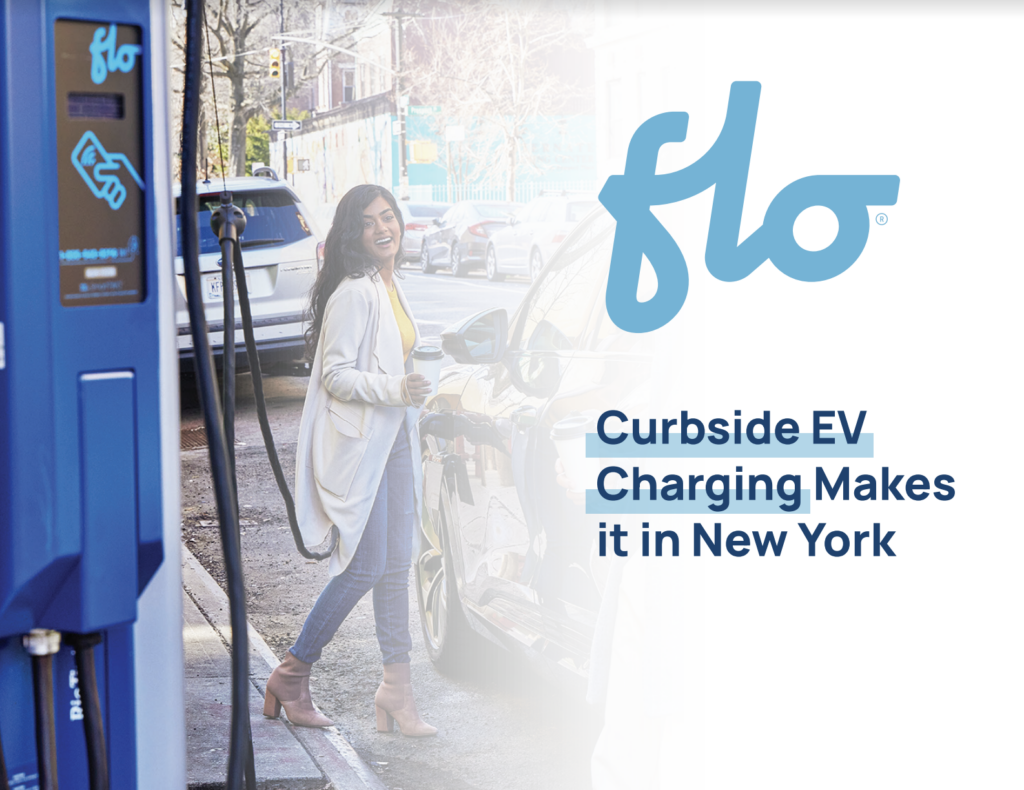Powering Up: FLO Presents a One-of-a-Kind Webinar on Adding EV Charging Stations to Your Commercial Property: A Comprehensive Guide for Real Estate Professionals

The electric vehicle revolution is underway, and FLO is leading the charge when it comes to building out the EV infrastructure that will be crucial in the coming years. On a recent Webinar, three senior members of the FLO team, Jonathan Lebus, Senior Incentives Specialist, Yomna Santos, Application Engineer, and Jose Hollanda, Marketing Programs Director, talked attendees through the process of installing and managing the firm’s EV charging stations as well as highlighting the many incentives and regulations that governments have set up to support the transition to electric vehicles. The team then answered attendee’s questions, giving them additional insight into the inner workings of this exciting and necessary transition to a cleaner future for everyone.
Because “transportation is the largest source of greenhouse gas emissions in the US,” explained Hollanda, the government sees the transition from gas to electric vehicles as “a very integral part of sustainability plans and in improving air quality.” With the Federal government setting ambitious guidelines, including the target of half of all US automakers’ domestic sales being 50% electric or hybrid by 2030, there’s a massive push not only for EV manufacturing but for the building out of charging stations to serve those customers. That’s where Lebus comes in: he works with clients to help them take full advantage of all the many incentives that governments are putting in place to promote more EV adoption and the building out of EV infrastructure.
While the FLO team are experts at helping clients navigate the web of incentives that have been implemented to promote these goals, Hollanda pointed out that installing EV charging stations benefits businesses in ways that go beyond a simple ROI calculation. “It’s something that can help with retention rates,” said Hollanda, who noted that, as more tenants and customers drive electric vehicles, having an EV charging station on your property can attract more traffic while taking advantage of incentives for installing them.

Before answering a few audience questions, the team spoke to FLO’s dedication to building out a robust, reliable EV charging infrastructure that utilizes the latest tech. Santos, the team’s Engineer, explained that FLO’s charging stations are built to NEMA’s 4x standard and have a “redundant network connection to make sure that users are able to charge no matter what. Even if the cell network is intermittent, for example, they’re still able to start a session and charge up.” Santos also outlined her team’s 24 hour service support, which ensures that problems are fixed quickly and competently when they do crop up.
The Webinar concluded with a few questions from attendees. When asked about reliability, Hollanda mentioned a recent study, which found that FLO’s charging stations around New York City had a 99% reliability over the course of 12 months. Another attendee wanted to know how the firm calculates potential ROI for clients who are interested in installing a charger on their property. “Depending on the area that you are in, there are incentives that are called Make Ready incentives,” answered Lebus. With these incentives, “the utility will pay up to, in some cases, up to 100% of the utility side upgrades to install the charger, which would then definitely impact the ROI.”
But, as Hollanda notes, adding a FLO charger is about more than just the discreet ROI of the charger itself. “It’s something that’s going to drive people to your place of business,” he said, noting that EV chargers tend to attract the prime under-40 demographic. “Offering this type of service is a way to introduce and to bring that type of demographic to your place of business, much more than just looking into the profit you can make for the station itself.”
Webinar Speakers

Jonathan Lebus
Senior Incentives Specialist, FLO
As an Incentives Specialist with 7 years of experience in the field, Jonathan has always been passionate about expanding cleaner grid technologies and working at the forefront of new innovations. He holds a B.S. in Environmental Studies, which has helped me understand the impact of my work on the environment and society. Throughout his career, he has had the opportunity to work with some of the largest clients in the industry, including Google, Apple, Microsoft, and various government agencies. One of his greatest achievements as a salesperson was securing a $3 million grant for a single project. His salesperson philosophy revolves around believing in the purpose of your work. “When you are passionate about what you do, it doesn’t feel like work at all.”

Yomna Santos
Application Engineer, FLO
Yomna Santos is an Application Engineer helping clients implement EV chargers
throughout the Pacific Northwest region while supporting the EV charging business development effort at FLO. Yomna is an Electrical Engineer who has extensive electrical and industrial controls experience, and a passion for customer engagement through design scope and business case development. Her experience includes leading the design, project management, and execution of projects at various international airports, including the Vancouver International Airport (YVR) and Tijuana International Airport (Mexico).

Jose Hollanda
Marketing Programs Director, FLO
As the driving force behind FLO’s strategic initiatives in the EV charging solutions space, Jose is committed to meeting the needs of both EV drivers and site hosts. With a deep passion for EV adoption and the expansion of charging infrastructure across North America, Jose brings a unique perspective as a proud EV owner himself. Prior to his current role, Jose amassed over a decade of experience in CPG, Research, and Manufacturing industries. His educational background includes a master’s in Business Administration and Marketing from Memorial University, solidifying his expertise in the field.

